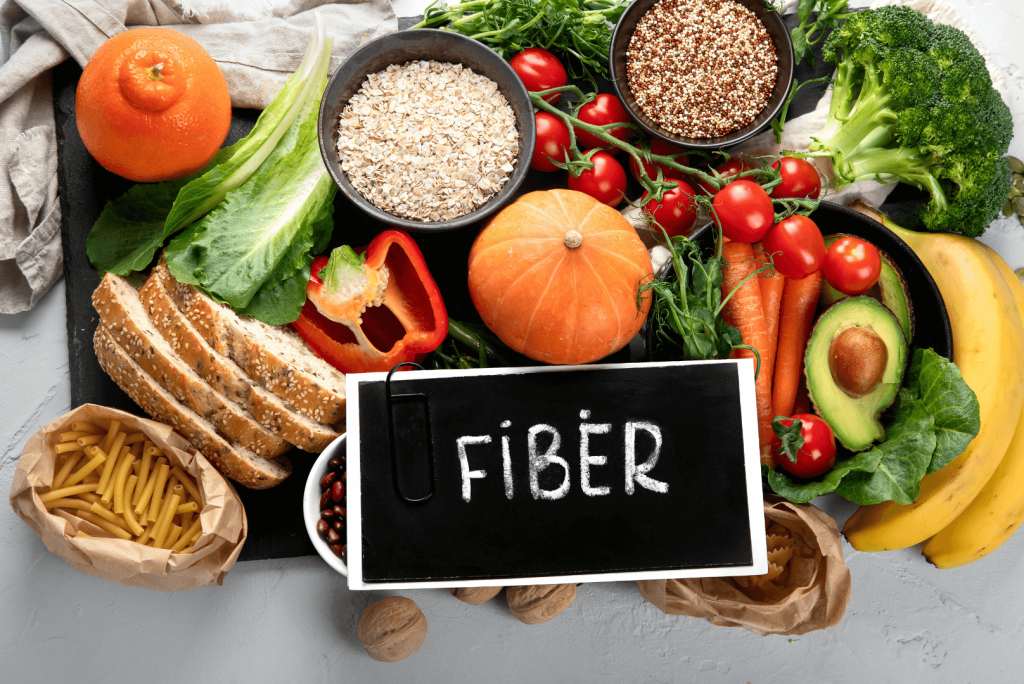
14 Science-Based Ways To Control Hunger For Weight Loss


14 Science-Based Ways To Control Hunger For Weight Loss
At some point, you will be hungry but cannot eat more if you want to stay within your caloric deficit. The following 14 tips can help you keep the calories under control. Some of these don’t involve eating.
1. Get Enough Sleep
A good night’s rest sets up your entire day for either success or struggle. If you get enough high quality sleep, your food cravings and hunger will be far lower than if you have poor sleep. Here’s what the research has discovered:
A two-week experiment was done on 10 overweight adults.The 5.5hrs of sleep per night group lost 55% less fat and 60% more muscle than 8.5hrs of sleep per night group. Beyond this, the 5.5hrs group also reported greater cravings than the 8.5hrs group. Cravings kill diets.

If you can’t manage hunger and cravings, your odds of success with any diet are close to zero. Sleep deprivation can easily lead to out-of-control food cravings.
The problems don’t end there. Here are some other eye-opening data around sleep deprivation:
- Increased their levels of the hormone ghrelin by 28% (the hunger hormone).
- Short-term sleep deprivation increased energy intake and led to a net weight gain in women.
- Has a harmful impact on carbohydrate metabolism and endocrine function. The effects are similar to those seen in normal aging and, therefore, may increase the severity of age-related chronic disorders.
- Research also shows that it takes more food to make someone feel satiated after breakfast, which can lead to snacking and eating.
2. Drink Coffee (Decaf Preferably)
Another adrenaline activator is coffee, which can lower appetite. However, there’s another pathway that coffee works on: peptide YY (PYY). Research shows that coffee increases the release of peptide PYY. PYY helps create a feeling of fullness and may have metabolic boosting benefits.
One of the most interesting findings was that decaffeinated coffee may produce the biggest reduction in hunger. The appetite suppression can last up to three hours after consumption. So as an appetite suppression strategy, you can focus on drinking decaf coffee throughout the day (especially if you’re genetically a slow caffeine metabolizer).
3. Drink Yerba Mate Tea
There’s a popular South American tea called Yerba Maté that can help reduce appetite. Wade personally loves drinking Yerba Maté over coffee. The l-theanine in Yerba Maté helps create a much smoother caffeine experience than coffee.
4. Stabilize Your Blood Sugar And Avoid “Hangry” Foods
Low blood sugar can make you hangry: irritable, tired, brain-fogged, and starving, leading to overall worse food choices. Blood sugar roller coaster is a recipe for hedonic hunger–when pizza, donuts, and pastries call your name.
Blood sugar roller coasters can happen after meals that spike your blood sugar and/or insulin. High blood sugar triggers big insulin releases so your cells quickly remove the glucose from your blood about 2-4 hours after you eat. The blood sugar dip can put your body in red alert mode, making you hungry and craving anything that will get your blood sugar back up.
So, one of the most important keys to managing your hunger is to find a diet that keeps your blood sugar even-keeled. That includes focusing on low glycemic impact foods and picking a macronutrient split that keeps you satiated with enough proteins and fats.
Recent research found that blood sugar responses to each high-glycemic impact food can differ widely from person to person, depending on their gut bacteria. Wade finds that potatoes make him feel very even-keeled, but it can cause major blood sugar roller coasters for other people. Matt, for example, finds it easier for him to manage hunger on keto.
The key is to observe your own response to different foods, both in terms of post-meal hunger and blood sugar. Then, if you do eat carbs, stick mostly to carbs that don’t throw you off. It doesn’t matter how healthy the carb appears. If whole-grain pasta makes you crash, it’s bad for you.
Now, some protein foods can trigger huge spikes of insulin, and thus hunger. Dairy proteins, especially whey, are very insulinogenic. If you get hungrier consuming these, you may want to replace them with another protein source that makes you more satiated.
If you struggle with blood sugar crashes and cravings, Blood Sugar Breakthrough can help you improve your overall blood sugar control. Many of its ingredients also help manage appetite. If you know certain foods make you ravenous, Blood Sugar Breakthrough is your friend on the occasion that you decide to eat them.
These tactics are simple things you can do before a meal to lower your potential hunger.

5. Exercise Before A Meal
Higher levels of adrenaline does have an appetite lowering effect. High intensity workouts are another healthy and effective appetite suppressant. A review based on 20 different studies found that appetite suppressing hormones (PPY and GLP-1) are suppressed immediately after a tough, high intensity workout. They also found that it helped lower ghrelin (the hunger molecule).
6. Drink Fluid, Soup, or Broth with Every Meal
Pounding a large glass of water before eating has been found to make a person feel more satiated after the meal.
In a study, they tracked the appetite of 50 overweight females who drank 1.5 liters of water a day for 8 weeks. They found that it lowered appetite and weight, and also led to better fat loss results.
There may be wisdom with the tradition of starting your meal with a soup. Some research showed that people reported feeling more satiated after the meal if they had a soup, possibly due to the glutamate content in it.
7. Fill Your Diet With High Satiety Foods
This is a powerful strategy for anyone who is eating carbs. Keto followers can move on to the next tip.
In 1995, a study done by Holt and co. studied the satiety levels of various foods. On this scale, 100 represents white bread. The higher the score, the more satiated you will feel. The lower the score means you will feel hungrier faster.
The data is clear: If you eat sugary, baked, and fried foods, you will be hungrier quickly. If you eat complex carbs and protein, you will feel fuller.
8. Eat Protein And Healthy Fats With Every Meal
Protein and fats are the most satiating macros. Making sure that you’ve got enough protein and/or fats in each meal is important. Most of us have had the experience of having a high carb Chinese meal and feeling hungry 90 minutes later.
Some proteins will satiate more than others. Dairy proteins: whey and casein are good options. When Matt is dieting and he’s hungry he likes eating high protein, low sugar cereals (like Magic Spoon) because he finds the milk protein satiating.
Bonus Tip: START your meal with fats, fiber and protein. This will slow down the absorption of the carbs.
9. Eat More High-Fiber Foods
Fiber is a powerful way to manage hunger. In Wade’s recent “final shredding” before publishing this book, maximizing fiber was one of his main strategies. Fiber slows down digestion and helps you feel full throughout the day. Fiber can help suppress appetite. Data shows that people who eat high fiber diets tend to have lower obesity rates. This might simply be because people who eat fiber tend to eat more vegetables, and thus lower calories.

10. Switch To Dark Chocolate
If you’ve got a sweet tooth like Matt, then chocolate is probably part of your diet. No shame in that. The key is to enjoy dark chocolate versus sugar loaded milk chocolates. Dark chocolate has been shown to suppress appetite compared to milk chocolate.
If you’re used to eating normal milk chocolate, then we suggest you progressively increase the cacao level. Go from regular chocolate to 45%. Then go to 50%, 55%, 60%, and so on. Many keto followers even find themselves enjoying 100% pure cacao. The interesting thing with cacao is that they have many different notes like wine. Some are naturally sweeter and some are more bitter. If you go down this road, you’ll eventually become a cacao connoisseur and join the endless hunt for the world’s best cacao.
11. Eat Some Ginger
Ginger is an absolute powerhouse spice. You should use as much ginger as you can possibly handle. If you can do 5 grams a day, then great. In one study, consuming 1-3 grams a day helped improve CRP and lipid profiles. In another study, it boosted men’s testosterone by 17%. In another study, ginger helped increase the thermic effect of food and helped lower appetite. The data is clear: incorporate ginger into your life.
12. Pick Solids Over Liquids with Calories
It’s classic dieting advice: EAT – don’t drink – your food. This is a good rule. One review found that people who ate a solid snack versus a liquid snack were 38% less likely to overeat their next meal. Another study confirmed that liquid calories have a low satiety level. One of the reasons is because solids require more chewing, which slows down your calorie consumption speed and gives more time for the fullness signal to reach the brain.
We formulated Protein Breakthrough to be a satiating meal. The combination of protein, fiber, and fats will leave you feeling satisfied for a few hours.
13. Don’t Drink Carbonated Beverages
Note the strikethrough on this one. Many people who diet resort to drinking copious amounts of carbonated water because the “gas makes them feel fuller”. However, this may be a bad idea. In both rats and humans, it seems that carbon dioxide gas increases ghrelin release and hunger response.
14. Eat Omega-3 Fats
Omega-3 fats, like those found in fish and algae oils, have the ability to raise levels of the hormone leptin, which helps you feel full. Leptin is a key hormone in metabolism. When calories are restricted for weight loss, a diet high in omega-3 fats may help promote satisfaction after meals. These impacts have only been seen in overweight and obese people so far. More research is needed to establish if it is true for lean individuals.
One of the greatest trainers of all time, Charles Poliquin, had a protocol for weight loss: 1 gram of fish oil for each percentage of body fat. That means someone with 20% body fat would consume 20 grams a day. It’s a very high dose, but based on this data, he was probably onto something.
References
- Nedeltcheva AV, Kilkus JM, Imperial J, Schoeller DA, Penev PD. Insufficient sleep undermines dietary efforts to reduce adiposity. Ann Intern Med. 2010;153(7):435-441. doi:10.7326/0003-4819-153-7-201010050-00006
- Morselli L, Leproult R, Balbo M, Spiegel K. Role of sleep duration in the regulation of glucose metabolism and appetite. Best Pract Res Clin Endocrinol Metab. 2010;24(5):687-702. doi:10.1016/j.beem.2010.07.005
- Bosy-Westphal A, Hinrichs S, Jauch-Chara K, et al. Influence of partial sleep deprivation on energy balance and insulin sensitivity in healthy women. Obes Facts. 2008;1(5):266-273. doi:10.1159/000158874
- Spiegel K, Leproult R, Van Cauter E. Impact of sleep debt on metabolic and endocrine function. Lancet. 1999;354(9188):1435-1439. doi:10.1016/S0140-6736(99)01376-8
- McNeil J, Drapeau V, Gallant AR, Tremblay A, Doucet E, Chaput JP. Short sleep duration is associated with a lower mean satiety quotient in overweight and obese men. Eur J Clin Nutr. 2013;67(12):1328-1330. doi:10.1038/ejcn.2013.204
- Greenberg JA, Geliebter A. Coffee, hunger, and peptide YY. J Am Coll Nutr. 2012;31(3):160-166. doi:10.1080/07315724.2012.10720023
- Karra E, Chandarana K, Batterham RL. The role of peptide YY in appetite regulation and obesity: Peptide YY in appetite regulation and obesity. J Physiol. 2009;587(1):19-25. doi:10.1113/jphysiol.2008.164269
- Alkhatib A, Atcheson R. Yerba Maté (Ilex paraguariensis) metabolic, satiety, and mood state effects at rest and during prolonged exercise. Nutrients. 2017;9(8):882. doi:10.3390/nu9080882
- Cheung LTF, Ko GTC, Chow FCC, Kong APS. Association between hedonic hunger and glycemic control in non-obese and obese patients with type 2 diabetes. J Diabetes Investig. 2018;9(5):1135-1143. doi:10.1111/jdi.12800
- Mendes-Soares H, Raveh-Sadka T, Azulay S, et al. Model of personalized postprandial glycemic response to food developed for an Israeli cohort predicts responses in Midwestern American individuals. Am J Clin Nutr. 2019;110(1):63-75. doi:10.1093/ajcn/nqz028
- Schubert MM, Sabapathy S, Leveritt M, Desbrow B. Acute exercise and hormones related to appetite regulation: a meta-analysis. Sports Med. 2014;44(3):387-403. doi:10.1007/s40279-013-0120-3
- Corney RA, Sunderland C, James LJ. Immediate pre-meal water ingestion decreases voluntary food intake in lean young males. Eur J Nutr. 2016;55(2):815-819. doi:10.1007/s00394-015-0903-4
- Vij VAK, Joshi AS. Effect of excessive water intake on body weight, body mass index, body fat, and appetite of overweight female participants. J Nat Sci Biol Med. 2014;5(2):340-344. doi:10.4103/0976-9668.136180
- Flood JE, Rolls BJ. Soup preloads in a variety of forms reduce meal energy intake. Appetite. 2007;49(3):626-634. doi:10.1016/j.appet.2007.04.002
- Holt SH, Miller JC, Petocz P, Farmakalidis E. A satiety index of common foods. Eur J Clin Nutr. 1995;49(9):675-690. Accessed October 18, 2022. https://pubmed.ncbi.nlm.nih.gov/7498104/
- Chambers L, McCrickerd K, Yeomans MR. Optimising foods for satiety. Trends Food Sci Technol. 2015;41(2):149-160. doi:10.1016/j.tifs.2014.10.007
- Sørensen LB, Astrup A. Eating dark and milk chocolate: a randomized crossover study of effects on appetite and energy intake. Nutr Diabetes. 2011;1(12):e21. doi:10.1038/nutd.2011.17
- Mansour MS, Ni YM, Roberts AL, Kelleman M, Roychoudhury A, St-Onge MP. Ginger consumption enhances the thermic effect of food and promotes feelings of satiety without affecting metabolic and hormonal parameters in overweight men: a pilot study. Metabolism. 2012;61(10):1347-1352. doi:10.1016/j.metabol.2012.03.016
- Almiron-Roig E, Palla L, Guest K, et al. Factors that determine energy compensation: a systematic review of preload studies. Nutr Rev. 2013;71(7):458-473. doi:10.1111/nure.12048
- Robinson E, Almiron-Roig E, Rutters F, et al. A systematic review and meta-analysis examining the effect of eating rate on energy intake and hunger. Am J Clin Nutr. 2014;100(1):123-151. doi:10.3945/ajcn.113.081745
- Eweis DS, Abed F, Stiban J. Carbon dioxide in carbonated beverages induces ghrelin release and increased food consumption in male rats: Implications on the onset of obesity. Obes Res Clin Pract. 2017;11(5):534-543. doi:10.1016/j.orcp.2017.02.001
- Gray B, Steyn F, Davies PSW, Vitetta L. Omega-3 fatty acids: a review of the effects on adiponectin and leptin and potential implications for obesity management. Eur J Clin Nutr. 2013;67(12):1234-1242. doi:10.1038/ejcn.2013.197
- Parra D, Ramel A, Bandarra N, Kiely M, Martínez JA, Thorsdottir I. A diet rich in long chain omega-3 fatty acids modulates satiety in overweight and obese volunteers during weight loss. Appetite. 2008;51(3):676-680. doi:10.1016/j.appet.2008.06.003
